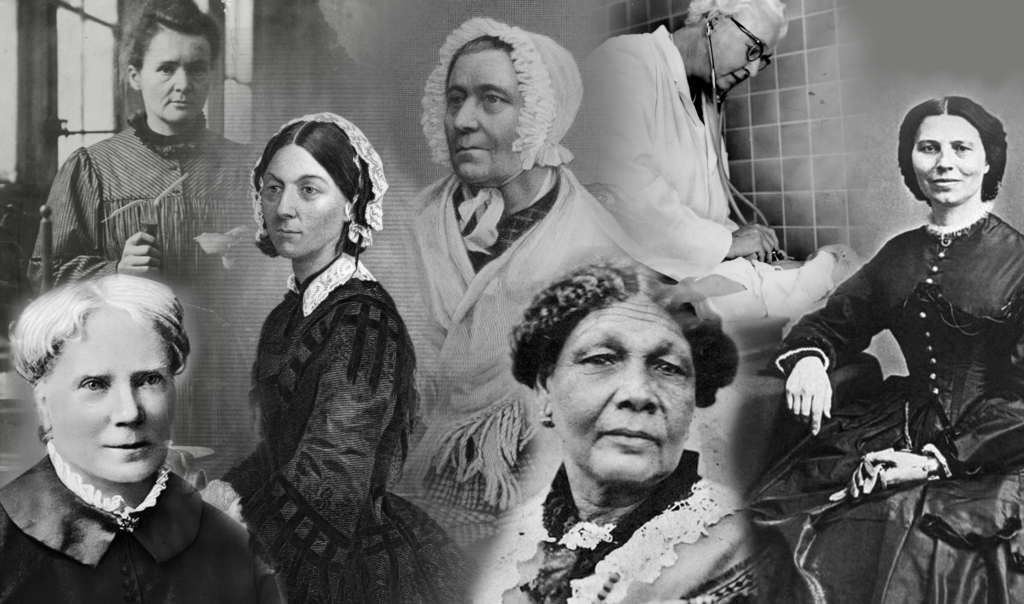
SLC win Ufi grant to develop AI language learning app for social carers
We’re delighted to have won a grant from Ufi VocTech Trust to develop an AI-driven technology solution that provides cheap phone-based language and communication skills

Throughout history, women have been at the forefront of healthcare, making groundbreaking contributions that have transformed medical practices, saved countless lives, and advanced the well-being of humanity. Their perseverance and innovations have paved the way for better healthcare worldwide. Below, we highlight some extraordinary pioneers whose legacies continue to inspire and shape the future of medicine.
Often referred to as "The Lady with the Lamp," Florence Nightingale revolutionized nursing during the Crimean War by implementing hygiene practices that drastically reduced infection rates. She established the Nightingale Training School for Nurses, creating a professional pathway for women in healthcare. Her legacy remains central to nursing education and practice worldwide.
Marie Curie’s research on radioactivity earned her two Nobel Prizes in Physics and Chemistry, making her the first person to receive Nobel honors in two scientific fields. Her discovery of radium and polonium laid the foundation for cancer treatments and medical imaging technologies. During World War I, she also developed mobile X-ray units, saving countless lives on the battlefield.
Elizabeth Blackwell shattered barriers by becoming the first woman to earn a medical degree in the United States in 1849. She advocated for women in medicine and established the New York Infirmary for Women and Children, providing care to underserved communities and offering training opportunities for female physicians.
Virginia Apgar developed the Apgar Score, a quick and effective tool used to assess a newborn's health immediately after birth. This innovation, introduced in 1952, revolutionized neonatal care by providing a standardized method to identify infants needing urgent medical attention. Her work has saved millions of lives and remains a cornerstone of modern obstetrics.
Known as the "Angel of the Battlefield" for her heroic efforts during the American Civil War, Clara Barton later founded the American Red Cross in 1881. Her dedication to disaster relief and humanitarian aid established an enduring organization that continues to provide life-saving assistance globally.
A Jamaican-born nurse and businesswoman, Mary Seacole provided essential medical care to British soldiers during the Crimean War. Despite facing racial discrimination, she established the "British Hotel," a medical facility near the battlefield where she treated wounded soldiers with innovative healing techniques. Her contributions were crucial to the war effort, and she is now recognized as a trailblazer in nursing and humanitarian care.
A determined and fearless nurse, Betsi Cadwaladr volunteered to work on the frontlines of the Crimean War, where she clashed with Florence Nightingale over the management of hospital care. She worked tirelessly to improve sanitation and provide direct care to wounded soldiers, earning their respect and gratitude. Her contributions to battlefield nursing remain an essential part of British medical history.
Rosalind Franklin (1920–1958): A Key to DNA Discovery
Her pivotal X-ray diffraction work revealed DNA’s double-helix structure, laying the foundation for advances in genetics and medical research.
Rebecca Lee Crumpler (1831–1895): The First Black Female Physician in the U.S.
Rebecca dedicated her career to underserved communities, particularly freed slaves, and authored A Book of Medical Discourses, one of the earliest medical texts by an African American.
Mary Eliza Mahoney (1845–1926): The First Black Professional Nurse in the U.S.
Mary Eliza was a trailblazer for diversity in healthcare and co-founded the National Association of Colored Graduate Nurses.
Dr. Helen Brooke Taussig (1898–1986): A Pioneer in Pediatric Cardiology
Helen’s work on “blue baby syndrome” saved countless infants, establishing her as a leader in the field of pediatric cardiology.
Dame Cicely Saunders (1918–2005): Founder of Modern Hospice Care
Cicely’s emphasis on dignity and pain management transformed end-of-life care through the hospice movement.
The remarkable contributions of these women have reshaped healthcare and improved lives globally. Their innovation, courage, and compassion continue to inspire generations, reminding us of the essential role women play in advancing medicine. Let us honor their achievements, not just on March 8th, but throughout the year, as we strive to build a more inclusive and impactful future in healthcare.

We’re delighted to have won a grant from Ufi VocTech Trust to develop an AI-driven technology solution that provides cheap phone-based language and communication skills

We’re delighted to announce a partnership with leading Medical English app, Doxa.

Back to Menu ↩ What is the UK Foundation Programme? The UK Foundation Programme is a two-year, structured, work-based training programme which is designed to
Get updates and get the latest materials on Medical English, OET and IELTS
